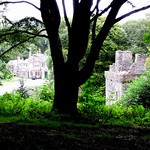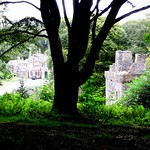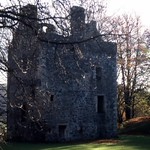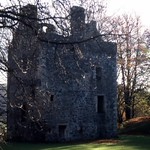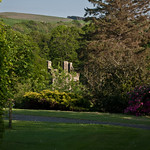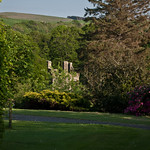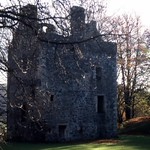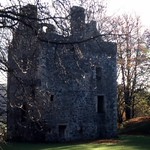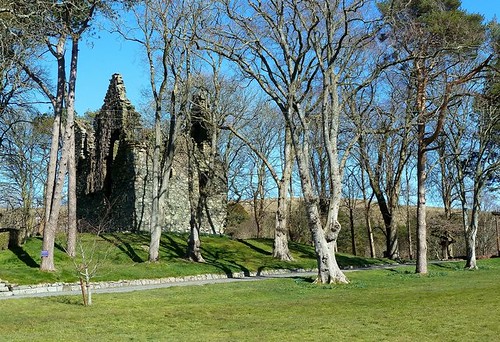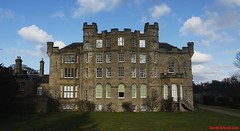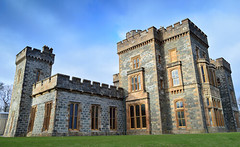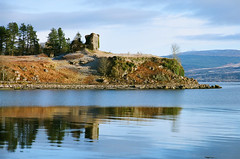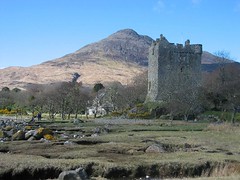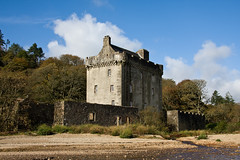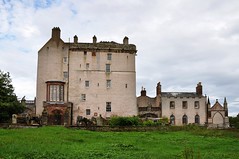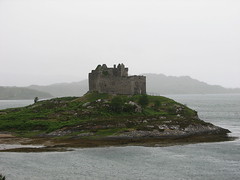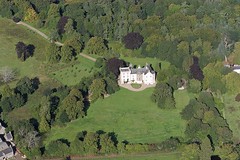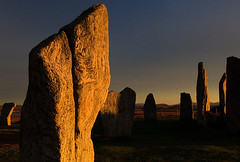Knockdolian Castle
Supposedly a haunted castle (see below). Knockdolian Castle was a Graham castle before becoming a McCubbins stronghold. It is now a ruin.
The ruins of Knockdolian Castle are situated near the present mansion of the same name. They mark the seat of a branch of the Cathcart family.
James Cathcart of Barneill was a younger son of Cathcart of Carleton (see Killochan Castle), who obtained a charter of the lands of Easter Barneill from James I. in 1601, and purchased the estate of Genoch in Wigtownshire in 1618.
His greatgrandson, John, the first Cathcart of Knockdolian, who acquired the estate by purchase from Fergus M'Cubbin in 1715, was a descendant of the two powerful houses of Kennedy of Culzean and Agnew of Lochnaw, and was himself allied by marriage with the Cochranes of Dundonald. He died in 1779 at an advanced age, and was succeeded by his son Robert, who only survived till 1789.
John Cathcart of Genoch and Knockdolian (1768-1835) was an advocate of some eminence, and increased his influence by his marriage with a daughter of Lord Rockville of Session, who was a younger son of the second Earl of Aberdeen. His eldest son, Robert (1797- 1840), entered the service of the East India Company, and died unmarried at Agra, Bengal. He was succeeded by his only surviving brother, the late Alexander Cathcart of Knockdolian (born 1800), in whom the direct line of this family terminated. The estate now belongs to William M'Connel, Esq., who acquired it in 1872.
The modern mansion of Knockdolian is situated near the base of the peculiar conical hill from which its name is taken, and on the right bank of the Stinchar. It was built by Alexander Cathcart of Genoch and Knockdolian in 1842, and several additions have since been made to it. Many of the trees in the neighbourhood are of great age; and the site of the house has been chosen with considerable taste.
The haunting of the castle arose after the mistress of the castle ordered the destruction of a black rock which stood just a short distance away from Knockdolian, so as to prevent a mermaid from sitting on it and singing. In revenge, the mermaid cursed the family, ensuring they all died without leaving an heir for the estate.


